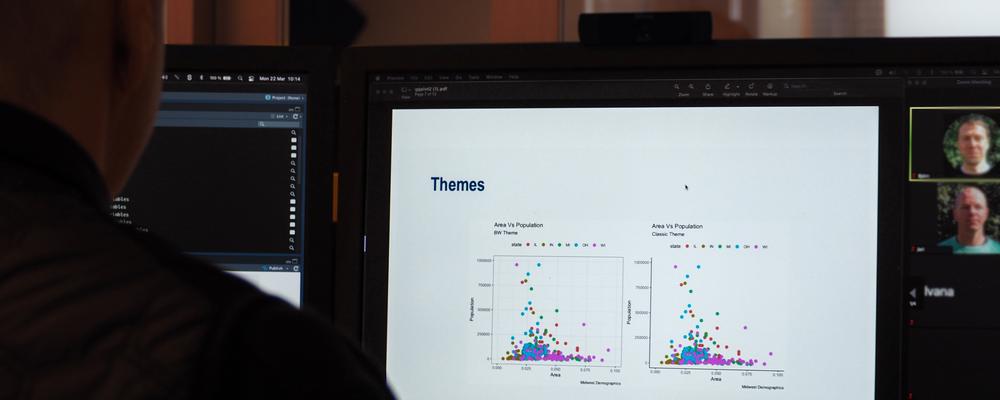As a consequence of the growth of molecular data, competence in analysis, visualization and interpretation of large-scale data has become essential for performing high quality research in biology and medicine. The Bioinformatics Core Facility team offers research support, management and analysis, along with integration and visualization of big data.
“As a research infrastructure, we are dedicated to support the research carried out by our users, with focus being on analysis of genomic, proteomic and epidemiological data,” says Marcela Dávila, head of the Bioinformatics unit at the University of Gothenburg.
Local and International Projects
“Most of our projects originate from the academic sector including the universities of Gothenburg and of Lund, as well as Karolinska Institute. We also work with international parties such as the Heidelberg University and the University of Tokyo,” Marcela says.
The team also assists local and regional healthcare institutions like Sahlgrenska University Hospital, Folktandvården Västra Götaland, and Södra Älvsborgs Sjukhus, among others.
Customized Analysis
Every year, the facility supports an average of 90 different projects that demand a combination of routine procedures as well as customized analysis.
“The wide range of statistical and bioinformatics services available, empowers our users research at any of the different stages of their projects, including planning and project design,” Marcela says.
Some common analyses include:
- Estimation of gene expression and methylation levels, either genome-wide or single cell
- Prediction of disease-causing mutations, including monogenic, polygenic and cancer cases, either from single samples or large cohorts
- Applied statistics such as survival analysis, logistic regressions, growth modeling and risk scoring
Education and training
Next to research support, the facility offers education and training. This includes six PhD-courses, strategically distributed throughout the year, helping the participants to build up experience and tackle more complex problems for each course.
The facility is also continuously developing training material covering a wide range of analyses, focusing on their application to real life examples, Marcela Dávila explains.
“We are keen on improving bioinformatics and statistical knowledge within the research community, and we therefore offer personalized training in the form of workshops and hands-on sessions, as well as higher education courses.”
Staying up to date
And for the team themselves to stay up to date in this constantly evolving domain, taking part in international research, courses and seminars is essential.
“Some of our experts are partially embedded into research groups at Sahlgrenska Academy, and we also arrange for our team to participate as guest researchers at other institutions abroad,” says Marcela.
How it started
In 1999, a collaboration between the University of Gothenburg and Chalmers University of Technology resulted in the first Swedish master’s program in bioinformatics and the National Research School in Genomics and Bioinformatics. Between 2000 and 2007 a platform evolved thru the Swegene initiative, becoming the Bioinformatics Core Facility (BCF) at University of Gothenburg in 2013. Today BCF harbors four bioinformaticians and four statisticians with different and complementary expertise.
